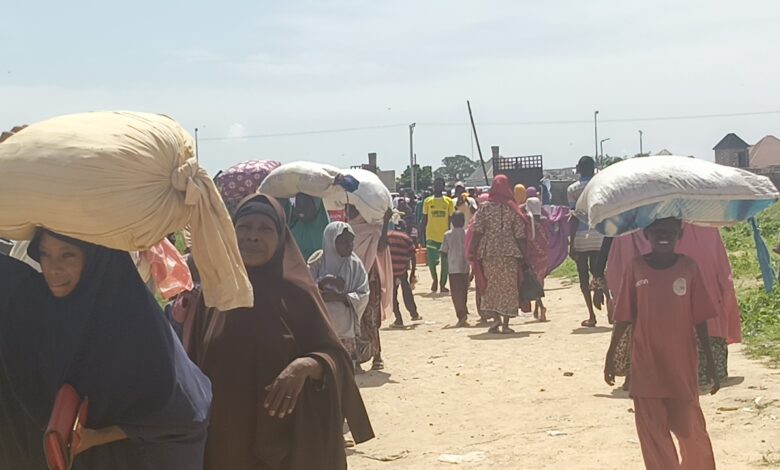Borno Government Reopens IDP Camps As Maiduguri Faces Severe Flooding
The fast-moving waters have overwhelmed central Maiduguri, submerging key locations, including the Shehu of Borno's palace, the state Secretariat, the zoo, the University of Maiduguri Teaching Hospital and the central cemetery.

On Sept. 13 1994, Maiduguri, northeastern Nigeria was devastated by a catastrophic flood that claimed numerous lives and destroyed homes and infrastructure. Today, exactly 30 years later, the city is grappling with a similar disaster as heavy flooding once again affects much of central Maiduguri.
As was the case in 1994, this latest flood was anticipated. While coastal areas experienced some flooding late last week, the situation escalated dramatically in the early hours of Tuesday when the dikes of the Alau Dam, a primary source of drinking water for the city, collapsed. The resulting deluge engulfed the city within hours.
Residents are facing mass displacement, with reports of corpses being washed ashore amid the chaos.
“We were asleep when the water overtook our streets and compound,” said Fatima Gamboru, a mother of eleven, including three orphaned nieces.
“We barely managed to escape with our children at around 1 a.m., seeking refuge on higher ground, but the water kept pursuing us until we arrived at Bakassi IDP camp.”
Zainab, a mother of five, was seen sitting on a median separator along a flooded dual carriageway leading to Lagos Street.
“I’ve been here since 1 a.m. when the flood engulfed our home in the Gwange Sabon-layi area. My siblings are trapped inside, and we have lost everything. We have nothing to eat,” she lamented.
The fast-moving waters have overwhelmed central Maiduguri, submerging key locations including the Shehu of Borno’s palace, the state Secretariat, the zoo, the University of Maiduguri Teaching Hospital and the central cemetery.
Residents in the Mashamari area of Gwange said they saw corpses washed up by the flood floating in the water.
“It’s heartbreaking with the sight of corpses floating on the water in our neighbourhood as the back perimeter fence of the Gwange Central cemetery,” said Aishatu Isa, a resident of Mashimari.
The flooding has forced many businesses to evacuate, while others nearby watched their investments disappear under the rising waters. Movement has become increasingly restricted, with only those able to wade through the floodwaters getting around.
“All routes connecting to Gwange have been completely flooded, preventing us from reaching our trapped neighbors,” said resident Mohammed Murtala, who also called for urgent food assistance.
With many residents displaced, the government has reopened several IDP camps to accommodate those affected. As people flock to these camps, the situation has become overwhelming, prompting aid agencies to deploy volunteers to assist with the registration of the displaced.
Support Our Journalism
There are millions of ordinary people affected by conflict in Africa whose stories are missing in the mainstream media. HumAngle is determined to tell those challenging and under-reported stories, hoping that the people impacted by these conflicts will find the safety and security they deserve.
To ensure that we continue to provide public service coverage, we have a small favour to ask you. We want you to be part of our journalistic endeavour by contributing a token to us.
Your donation will further promote a robust, free, and independent media.
Donate HereStay Closer To The Stories That Matter




